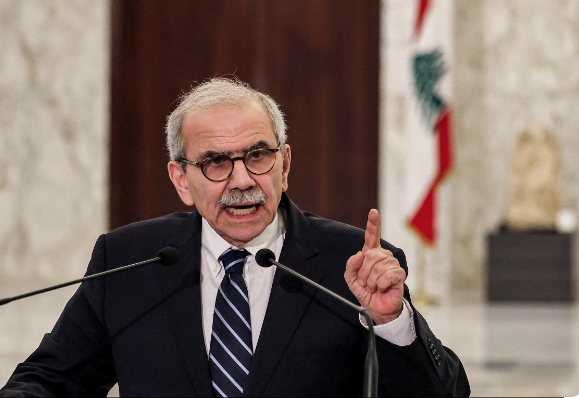The Beirut One investment conference, intended as a platform to rebuild confidence and attract capital, culminated not in optimism, but in an act of profound institutional betrayal. Following the final panel, which featured interventions from Minister of Economy Amer Bisat, Prime Minister Nawaf Salam, and Charles Arbid, president of Lebanon’s Economic and Social Council, the carefully curated narrative of reform dissolved into harsh reality.
In a moment that starkly exposed the human cost of the financial crisis, an elderly man, impeccably dressed and visibly shaking, rose to address the Prime Minister. Tears streamed down his face – the visible anguish of a lifetime of savings under threat – as he posed his query:
“Our money in the banks was not burned in a fire; it was mismanaged and stolen. Can you definitively clarify the rumors about erasing our hard-earned savings?”
The prime minister’s response, despite his prior assurances to safeguard deposits, confirmed the worst-case scenario. It was direct, devastating, and delivered a catastrophic blow to the nation’s fragile confidence:
“I stated when I took office that deposits would not be touched. However, we cannot return the money. There is no other solution but to delete a portion of deposits.”
The devastated look on the elderly man’s face spoke volumes. This reversal – coming from the highest office and overturning a fundamental promise – was a complete implosion of state credibility.
The Absence of Alternatives: A Confirmation of Control
The policy driving this disastrous decision is alarmingly off-course, largely due to poor counsel. While we concede that Prime Minister Salam is not a trained economist, the economic strategy is being actively derailed by the backseat driving from the old state apparatus, coupled with the corrosive influence of certain groups that claim to be reformists but harbor hidden, self-serving agendas.
Worse still, this government is ignoring viable paths to recovery. Serious alternatives, proposed by seasoned economists with long track records, have been put forward – alternatives that do not involve confiscating savings. The deliberate refusal to take these expert recommendations into consideration confirms our worst fears: the deep state is still firmly in control.
This cabal is actively promoting a system that privileges informality and the cash economy, a system that benefits those who profited from the collapse. The prime minister, by endorsing this destructive “haircut,” demonstrates a critical lack of insight – he has clearly not been properly informed as to who precisely led the attack on the banking industry and who stands to gain from wiping the slate clean at the expense of ordinary depositors.
The Erosion of Policy and Trust
The financial and political implications of this moment are clear: the prime minister’s public confirmation of a “haircut” on deposits, effectively socializing the losses incurred by financial mismanagement, has permanently severed the public’s trust in both the central bank and the government, guaranteeing a deep-seated and lasting cynicism toward any future economic recovery plan that relies on citizen cooperation or capital repatriation, as this act is widely viewed as state-sanctioned theft and failed governance.
The fundamental question posed to our prime minister, equipped as he is with juridical command, is this: Did the government appoint a world-renowned legal expert to deploy his knowledge to circumvent the constitution rather than uphold the basic right to property, thereby furthering the catastrophic implosion of public trust? This incident will define not just the conference, but the remaining lifespan of this administration.
311

